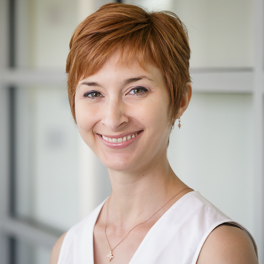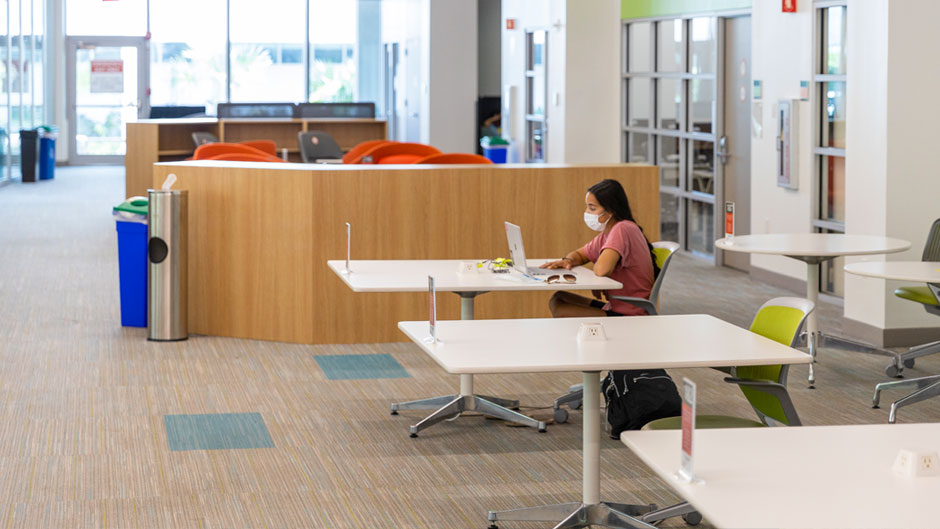From simple needs, like finding scholarly resources, to more in-depth requests, like developing search strategies, the Peer Research Consultant (PRC) program at the University of Miami Libraries is ready to assist students with research and information seeking.
Since 2016, the program has provided peer-to-peer consulting research services for both undergraduate and graduate students. The consultants work closely with librarians and staff to assist fellow students with tasks including finding scholarly resources, creating and managing citations, and facilitating meetings with other Learning Commons experts. In March 2020, the program moved online following the COVID-19 pandemic.

Lauren Fralinger, education and arts and sciences librarian, oversees the program and is responsible for training the consultants. Following a national trend at university libraries, she said it provides an opportunity for students to be guided by other students through the research process and encourages them to learn from each other.
The research process can range from simple questions to very specific requests that require the consultants to know a wide range of databases and skills. It is particularly important for them to form appropriate questions to deal with a variety of disciplines.
A sister program to the Library Research Scholar Program, which was inaugurated in 2015, PRC contributes to building a community of scholars that foster a sense of accomplishment among students.
“Instead of only being able to talk to librarians, which students can still absolutely do, they’re welcome to make appointments or drop-in to talk to a peer research consultant, who are students like themselves,” Fralinger said. “We found that students tend to find other students a little more approachable because they’re sort of in the same boat together.”
Typically, seven students—two graduate students and five undergrads—from a diverse range of majors are selected annually to be in the paid program. During the application process, Fralinger and her colleagues search for students who exemplify a strong interest in research, have excellent communication skills, and are encouraging and supportive to their peers.
Kate Villa, a fourth-year grad student in philosophy at the College of Arts and Sciences, has been a peer consultant since fall 2018. After obtaining her master’s degree in library and information science from the University of Illinois at Urbana-Champaign, the Chicago native wanted to continue working in the library in some capacity while pursuing her doctorate.
In her role, she said that she has had the pleasure of meeting “amazing people” who work in the library, and it has also provided her with opportunities to work for the manuscripts and archives management department. Most recently, she began working with the Cuban Heritage Collection.
“I recall helping a student with a public policy paper and I appreciated how her face lit up upon finding some helpful government documents and developing a research strategy,” Villa said. “Honestly, it was all her, I just was able to ask the right questions.”
Villa said she has learned a lot about working in an academic library. Her favorite part of the program is showing students where books are located, since many of them are unfamiliar with the stacks area of the library.
“I’ve conducted research interviews in Spanish, as a bilingual Spanish and English speaker,” she said. “It felt good to be able to assist people in the language they are most comfortable with.”

